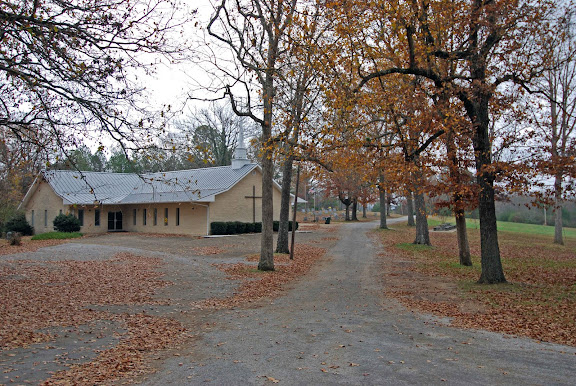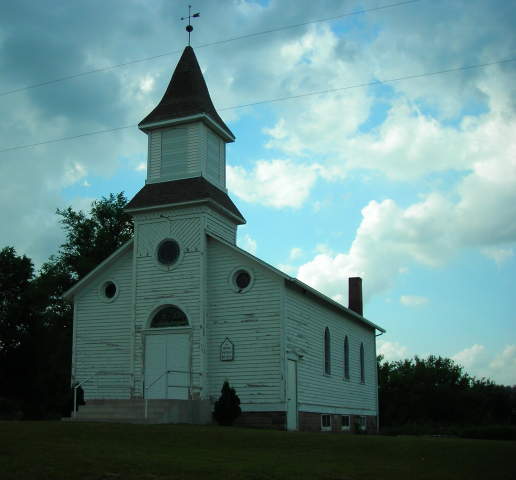This week’s chapter from George Herbert’s The Country Parson is a longer one, I’ll post the full thing today, commentary will follow later.
THe Countrey Parson at spare times from action, standing on a hill, and considering his Flock, discovers two sorts of vices, and two sorts of vicious persons. There are some vices, whose natures are alwayes deer, and evident, as Adultery, Murder, Hatred, Lying, &c. There are other vices, whose natures, at least in the beginning, are dark and obscure: as Covetousnesse, and Gluttony. So likewise there are some persons, who abstain not even from known sins; there are others, who when they know a sin evidently, they commit it not. It is true indeed, they are long a knowing it, being partiall to themselves, and witty to others who shall reprove them from it. A man may be both Covetous, and Intemperate, and yet hear Sermons against both, and himselfe condemn both in good earnest: and the reason hereof is, because the natures of these vices being not evidently discussed, or known commonly, the beginnings of them are not easily observable: and the beginnings of them are not observed, because of the suddain passing from that which was just now lawfull, to that which is presently unlawfull, even in one continued action. So a man dining, eats at first lawfully; but proceeding on, comes to do unlawfully, even before he is aware; not knowing the bounds of the action, nor when his eating begins to be unlawfull. So a man storing up mony for his necessary provisions, both in present for his family, and in future for his children, hardly perceives when his storing becomes unlawfull: yet is there a period for his storing, and a point, or center, when his storing, which was even now good, passeth from good to bad. Wherefore the Parson being true to his businesse, hath exactly sifted the definitions of all vertues, and vices; especially canvasing those, whose natures are most stealing, and beginnings uncertaine. Particularly, concerning these two vices, not because they are all that are of this dark, and creeping disposition, but for example sake, and because they are most common, he thus thinks: first, for covetousnes, he lays this ground: Whosoever when a just occasion cals, either spends not at all, or not in some proportion to Gods blessing upon him is covetous. The reason of the ground is manifest, because wealth is given to that end to supply our occasions. Now, if I do not give every thing its end, I abuse the Creature, I am false to my reason which should guide me, I offend the supreme Judg, in perverting that order which he hath set both to things, and to reason. The application of the ground would be infinite; but in brief, a poor man is an occasion, my countrey is an occasion, my friend is an occasion, my Table is an occasion, my apparell is an occasion: if in all these, and those more which concerne me, I either do nothing, or pinch, and scrape, and squeeze blood undecently to the station wherein God hath placed me, I am Covetous. More particularly, and to give one instance for all, if God have given me servants, and I either provide too little for them, or that which is unwholsome, being sometimes baned meat, sometimes too salt, and so not competent nourishment, I am Covetous. I bring this example, because men usually think, that servants for their mony are as other things that they buy, even as a piece of wood, which they may cut, or hack, or throw into the fire, and so they pay them their wages, all is well. Nay, to descend yet more particularly, if a man hath wherewithall to buy a spade, and yet hee chuseth rather to use his neighbours, and wear out that, he is covetous. Nevertheless, few bring covetousness thus low, or consider it so narrowly, which yet ought to be done, since there is a Justice in the least things, and for the least there shall be a judgment. Country people are full of these petty injustices, being cunning to make use of another, and spare themselves: And Scholers ought to be diligent in the observation of these, and driving of their generall Schoole rules ever to the smallest actions of Life; which while they dwell in their bookes, they will never finde; but being seated in the Countrey, and doing their duty faithfully, they will soon discover: especially if they carry their eyes ever open, and fix them on their charge, and not on their preferment. Secondly, for Gluttony, the parson lays this ground: He that either for quantity eats more then his health or imployments will bear, or for quality is licorous after dainties, is a glutton; as he that eats more then his estate will bear, is a Prodigall; and hee that eats offensively to the Company, either in his order, or length of eating, is scandalous and uncharitable. These three rules generally comprehend the faults of eating, and the truth of them needs no proofe: so that men must eat neither to the disturbance of their health, nor of their affairs, (which being overburdened, or studying dainties too much, they cannot wel dispatch) nor of their estate, nor of their brethren. One act in these things is bad, but it is the custome and habit that names a glutton. Many think they are at more liberty then they are, as if they were Masters of their health, and so they will stand to the pain, all is well. But to eat to ones hurt, comprehends, besides the hurt, an act against reason, because it is unnaturall to hurt ones self; and this they are not masters of. Yet of hurtfull things, I am more bound to abstain from those, which by mine own experience I have found hurtfull, then from those which by a Common tradition, and vulgar knowledge are reputed to be so. That which is said of hurtfull meats, extends to hurtfull drinks also. As for the quantity, touching our imployments, none must eat so as to disable themselves from a fit discharging either of Divine duties, or duties of their calling. So that if after dinner they are not fit (or unweeldy) either to pray, or work, they are gluttons. Not that all must presently work after dinner; (For they rather must not work, especially Students, and those that are weakly,) but that they must rise so, as that it is not meate or drinke that hinders them from working. To guide them in this, there are three rules: first, the custome, and knowledg of their own body, and what it can well disgest: The second, the feeling of themselves in time of eating, which because it is deceitfull; (for one thinks in eating, that he can eat more, then afterwards he finds true:) The third is the observation with what appetite they sit down. This last rule joyned with the first, never fails. For knowing what one usually can well disgest, and feeling when I go to meat in what disposition I am, either hungry or not, according as I feele my self, either I take my wonted proportion, or diminish of it. Yet Phisicians bid those that would live in health, not keep an uniform diet, but to feed variously, now more, now lesse: And Gerson, a spirituall man, wisheth all to incline rather to too much, then to too little; his reason is, because diseases of exinanition are more dangerous, then diseases of repletion. But the Parson distinguisheth according to his double aime, either of Abstinence a morall vertue, or Mortification a divine. When he deals with any that is heavy, and carnall; he gives him those freer rules: but when he meets with a refined, and heavenly disposition, he carryes them higher, even somtimes to a forgetting of themselves, knowing that there is one, who when they forget, remembers for them; As when the people hungred and thirsted after our Saviours Doctrine, and tarryed so long at it, that they would have fainted, had they returned empty, He suffered it not; but rather made food miraculously, then suffered so good desires to miscarry.
Edit: Image removed, I thought it had been released under creative commons license.



